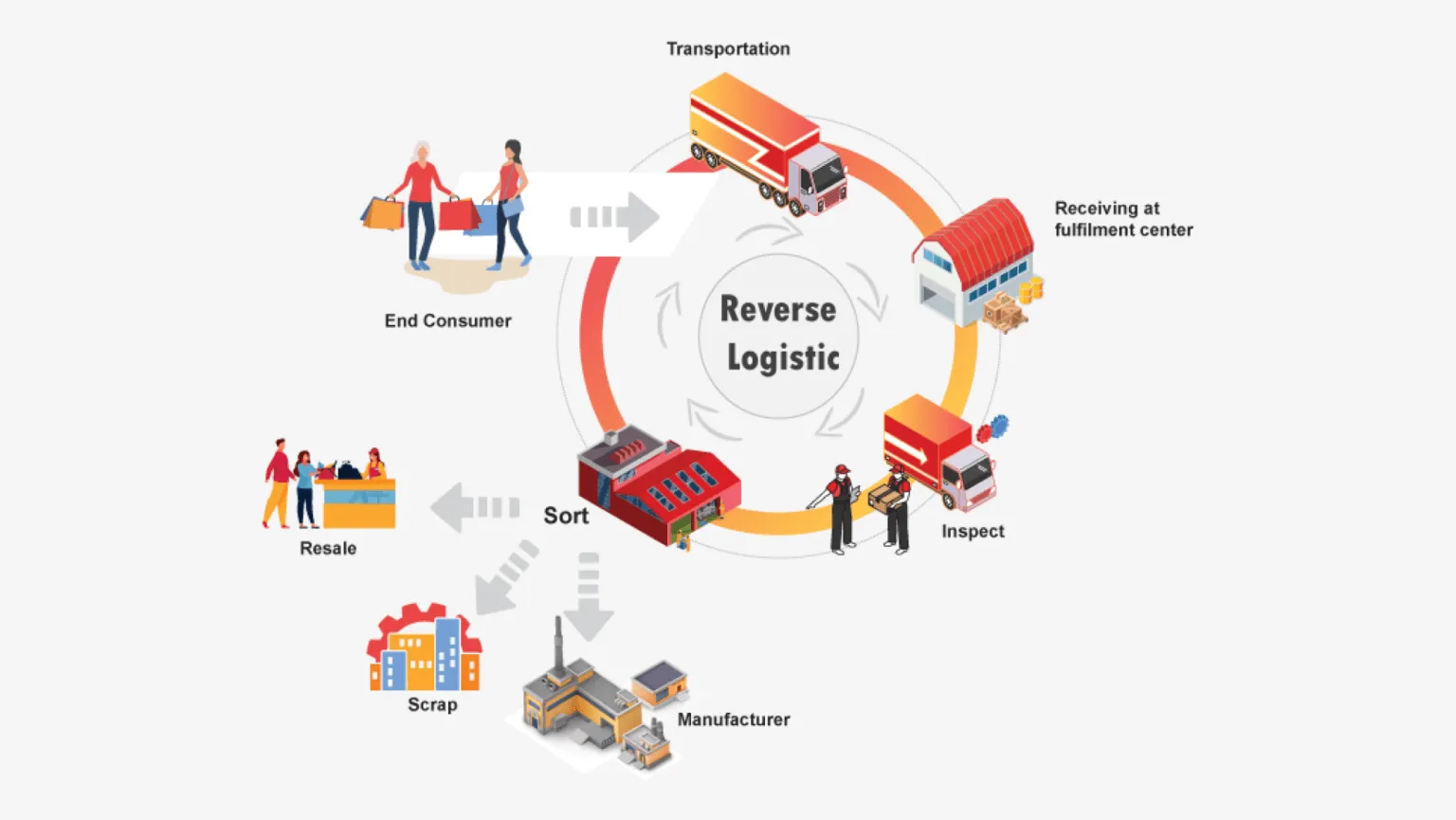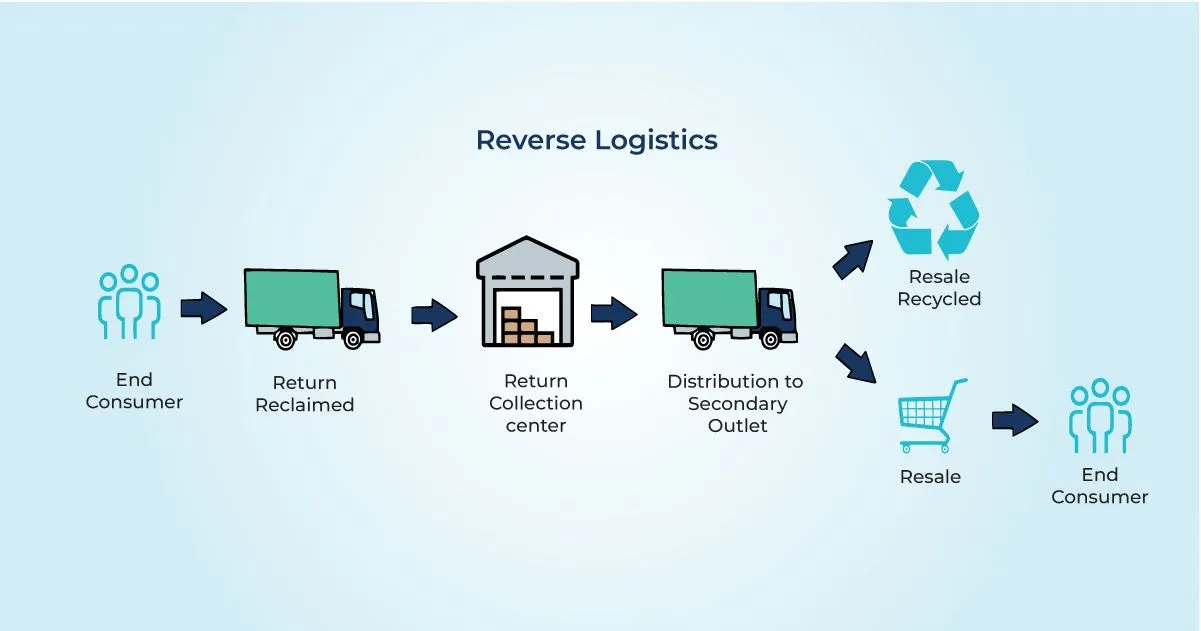Reverse Logistics
Streamlined Returns and Recovery Solutions for Efficient Reverse Logistics Management
Reverse logistics involves the process of managing the return, repair, recycling, and disposal of products and materials in a supply chain. It encompasses activities such as product returns, refurbishment, and redistribution. Reverse logistics aims to optimize the value of returned goods, reduce waste, and minimize environmental impact. It plays a critical role in sustainability efforts and can contribute to cost savings and customer satisfaction. This comprehensive approach ensures that returned products are handled efficiently, creating opportunities for value recovery while supporting environmental responsibility.
Need For Reverse-Logistics Process
Reverse logistics is crucial for managing product returns, repairs, and disposal efficiently. It minimizes losses, recovers value from returns, and supports environmental sustainability through recycling and responsible disposal practices. Efficient reverse logistics leads to cost savings, improved customer retention, and environmental benefits. In today's competitive marketplace, businesses must implement robust reverse logistics processes to handle increasing return volumes, regulatory compliance requirements, and customer expectations for seamless return experiences.


Reverse-Logistics Process
Reverse logistics refers to the process of managing the return of goods from the point of consumption to the point of origin. It involves activities such as product returns, recalls, repairs, recycling, and disposal. The goal is to optimize these processes to recover value from returned products, minimize waste, and ensure environmental sustainability. Effective reverse logistics requires efficient handling, transportation, and disposition of returned items, often involving coordination with multiple stakeholders in the supply chain. This comprehensive approach ensures that every returned product is processed efficiently, creating maximum value while maintaining environmental responsibility.
Benefits of Reverse-Logistics
Promoting eco-friendly practices and waste reduction
Optimizing costs through efficient return processing
Strategic management of returned and refurbished goods
Enhanced partnerships with suppliers and vendors
Insights-driven decision making for process enhancement
Building lasting relationships through excellent service